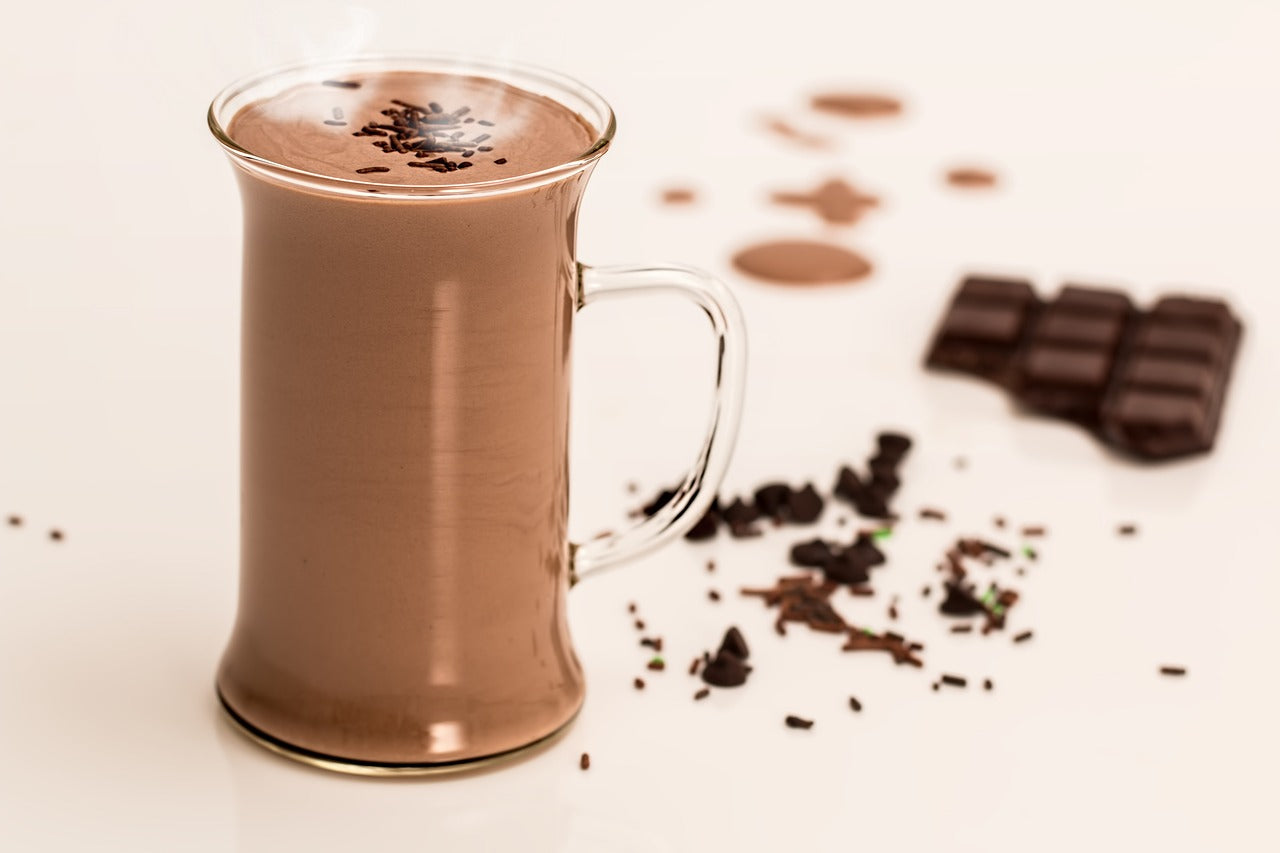“Because sleep is a beautiful thing” – this catchy ZzzQuil slogan speaks the truth but also advertises their sleep aid medication. NyQuil, which is known for its cold medication, jumped on the sleep med bandwagon after discovering many people were taking NyQuil for its sleep-inducing side effects. ZzzQuil, however, has been designed for “sleep and sleep only”.
The medication is just one of several popular over-the-counter sleep aids. There are also plenty of prescription options and natural sleep aids on the market for people to choose from. It’s no surprise there are so many options as the struggle is very real. In the U.S., it is estimated that up to 70 million people experience sleep-related issues. In fact, the CDC has stated that 1 in 3 adults aren’t getting enough sleep on a regular basis!
Despite over 33% of the adult population struggling with sleep, only 8% of adults over 65 take prescription sleep medication and just 4% of adults over the age of 20. So, why the discrepancy? It’s not because the remaining 29% don’t want to sleep but because of the side effects and fears associated with taking sleeping pills.
Many prescription sleep medications come with a long list of side effects and have the potential to make sleep issues worse. They can be habit-forming when used for prolonged periods, where your body begins to rely on them to fall asleep. And when you are awake, you can still feel tired, confused, foggy-headed, and experience headaches, diarrhea, or constipation.
The potential side-effects will depend on the medication you take. Though often similar, these drugs affect the brain differently or possess different chemical structures. To help you understand the science of sleeping pills, we’ve laid out the biology and side-effects behind some of the most popular prescriptions as well as some natural sleep aid options.
First up are benzodiazepines. This is one of the oldest sleeping drugs on the market and has been prescribed to aid with sleep and anxiety for quite some time. Some common names include Valium (diazepam), Klonopin (clonazepam) and Xanax (alprazolam).
Benzodiazepines have historically been prescribed to treat chronic insomnia, night terrors, and sleepwalking. These types of sleep aids are being prescribed less and less because of their risk of abuse. They work by acting on your central nervous system, causing a full-body sedative effect. After you take the pill, a protein within your brain called gamma-aminobutyric acid, also known as (GABA)-A receptor, binds to a neurotransmitter called GABA, which creates a magnified calming effect. It slows heart rate, blood pressure, and breathing.
One of the most significant risks for benzodiazepine is addiction. It is habit-forming, and people can quickly become addicted to its sedative effects, progressively taking more and more. In addition to the risks associated with addiction, users can also experience dizziness, sleep problems, vomiting, slurred speech, paranoia, irritability, anxiety, mental cloudiness, drowsiness, generalized pain, and more.
Another common prescription sleeping pill is eszopiclone (Lunesta). You've probably seen the Lunesta commercials on TV. Despite their share of controversy, like a 2010 FDA scandal for allowing them to air a misleading TV ad, their commercials have aired frequently – especially late at night while the sleep-deprived are scrolling through the channels. Even before the 2010 drama, in 2006, Lunesta was the “most recalled” TV ads by consumers. This is primarily because of their big claims that no matter what is keeping you up – Lunesta would help you sleep.
The way Lunesta and other eszopiclone work is similar to benzodiazepines. It increases GABA, slowing the brain. It is often prescribed to treat insomnia, and though it isn’t restricted to short-term use, the longer you take it, the greater your risk for side effects.
The short-term side effects of Lunesta are similar to other prescription sleeping medications including daytime drowsiness, dry mouth, chest pain, headache, and unusual dreams. Further, when taking a dose greater than 1 mg, you can experience mental and physical impairment the next day. As a result, the FDA issued a safety warning, advising not to drive or engage in other activities if not fully awake.
Due to its impact on the central nervous system, it can cause loss of consciousness and even stop breathing if you take too much. Therefore it’s crucial to follow the doctor’s advice and the instructions on your prescription. When taken for an extended period, your body can become dependent, and will respond differently. Long-term side-effects include suicidal thoughts, depression, anxiety, worsened sleep or rebound insomnia, memory loss, joint pain, liver or kidney damage, and agitation.
For those who only need help to fall asleep, there is zolpidem. Common zolpidem’s include Ambien, Edluar and Intermezzo. These medications are often used for those who experience difficulty falling asleep but can stay asleep at night. Unfortunately, one of the issues with this drug is that some people will fall asleep quickly, just to wake up hours later.
The chemical structure of zolpidem is different from eszopiclone and benzodiazepine, but it also enhances GABA effects in the brain. These effects are more short-lived, which is why people can wake up suddenly. Ambien CR was created to stay in the system longer but comes with more significant risks. Some people may wake up but not be fully awake. This can cause them to engage in sleepwalking or sleep-driving, among other activities.
This drug was designed to reduce daytime downiness that comes with many other sleeping medications. It is often quite effective and is why it is one of the most popular sleeping pills and the 15th most commonly prescribed drug in the country. That said, it is not without side effects. Those taking a zolpidem like Ambien may experience irregular heartbeat, appetite loss, nausea, abnormal body movements, double vision, muscle cramps, and pinpoint pupils. More rare yet severe side effects include depression, sleep disturbances, nightmares, suicidal thoughts, memory loss, and loss of emotional affect.
As mentioned previously, there are also over-the-counter options like ZzzQuil. ZzzQuil contains a drug called diphenhydramine which works by blocking histamine receptors in your brain that control alertness. As a result, it makes you to feel drowsy. When used as directed, side effects are rare. Some side effects include constipation, nausea, dizziness, headache, dry mouth, or dry eyes. More severe but rare side effects include trouble urinating, eye and vision problems, very fast heart rate, palpitations or arrhythmia, low blood pressure, chest congestion, seizures, hallucinations, or delirium.
Though these side effects may turn you off of sleeping pills, you may be willing to try anything when you have insomnia or severe sleep disturbances. Under the care of a health professional, these sleeping pills can be helpful. But, of course, it depends on your medical history, how your body responds, how much you take, etc.
Many medical professionals will suggest a natural sleep aid and behavioral adjustments before prescribing sleep aids. For example, limiting caffeine intake, having a comfortable pillow (like a buckwheat hulls pillow, of course), and putting your phone away at night. Common natural sleep aids include magnesium glycinate, melatonin, and L-tryptophan.
Magnesium is an essential nutrient already occurring in our body. Magnesium levels are important for bodily function, including sleep, but unfortunately, the average diet doesn't contain enough. Research has found that up to 75% of Americans are deficient in the mineral!
There are different types of magnesium supplements, but the most effective for sleep is magnesium glycinate. Magnesium glycinate provides you with a soothing, calming effect that can help ease you into sleep. It also has additional perks, like reducing anxiety, promoting bone health, managing blood sugar, maintaining normal heart rhythm, and reducing pain.
When taken at a low dose, you likely won’t experience any side effects. Only when taken at a much higher dose, can you experience stomach cramps, nausea, and diarrhea. It can also interact with some prescription medications like antibiotics of bisphosphonates.
Your body produces melatonin naturally. It is a hormone produced by your brain and plays a vital role in sleep. It is triggered by darkness, and ideally, your melatonin levels should naturally rise in the evening. There are things that can affect this, like jet lag, not spending time outdoors, or looking at blue light in the evening. Fortunately, you can take it as a supplement to help promote sleep.
Because melatonin is naturally occurring, there are few side effects. If you do experience one, like headache, nausea, or drowsiness, they are often short-lasting. Despite being naturally occurring, you should consult a medical professional before taking it. Melatonin can interact with other prescription medications like diabetes drugs, anticoagulants, or contraceptive medications.
Under the guidance of a physician, sleeping pills can serve a purpose. Prolonged insomnia will come with its own unpleasant symptoms, so when you are sleep-deprived, you may be willing to try anything. Just remember that natural remedies do exist and should also be explored.
Who knows, with a buckwheat hulls pillow, a solid bedtime routine, and a magnesium glycinate supplement, you could find the rest you’ve been craving!
For our full guide to sleep aids, check out this article.






